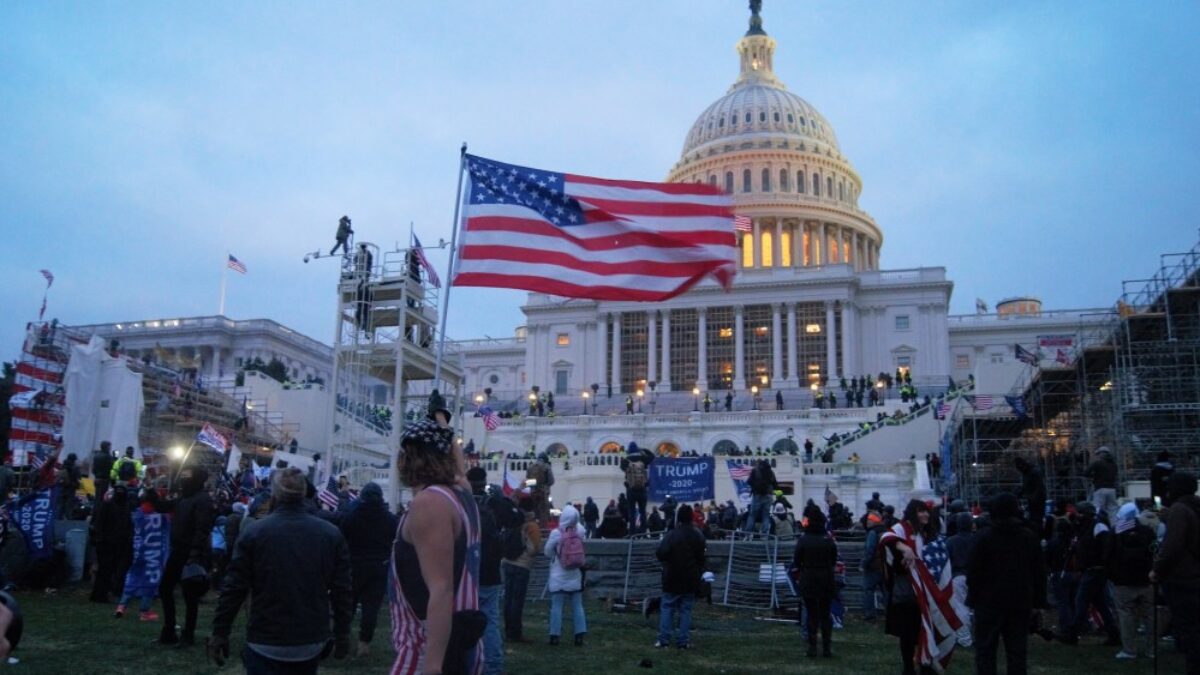
House Speaker Nancy Pelosi’s weaponized committee on Jan. 6, 2020 has subpoenaed phone records from private citizens, say Republicans familiar with the investigation.
“That committee has moved forward with issuing subpoenas to telephone companies,” a Republican aide told The Federalist. “Our understanding at this point is they have not subpoenaed member information, but they are subpoenaing telephone records of private American citizens.”
The reveal follows a CNN report in August that the House Select Committee requested telecommunications companies maintain phone records of members on Capitol Hill and of former President Donald Trump’s family. Republicans say none have been formally subpoenaed.
House Minority Leader Kevin McCarthy threatened companies that comply with a records turnover to Democrats’ partisan probe. Doing so, McCarthy said, would be “in violation of federal law and subject to losing their ability to operate in the United States.”
“A Republican majority will not forget and will be ready to hold them fully accountable under the law,” McCarthy wrote.
My statement on Democrats asking companies to violate federal law: pic.twitter.com/XELEVNbx65
— Kevin McCarthy (@GOPLeader) August 31, 2021
On what exactly such accountability would look like, Ohio Republican Rep. Jim Jordan described as curtailment of broad protections offered under Section 230, a provision of the 1996 Communications Decency Act shielding major firms from third-party liability.
“We should pass it and show the American people where we want to go,” Jordan said in reference to the “Protect Speech Act” proposing Section 230 reform. Despite no chance of a presidential signature under a Biden White House, Jordan said its support in the House would showcase GOP commitment on issues of censorship, punishing telecom companies in process.
Jordan also said Republicans ought to “speed up the path to get antitrust cases to the Supreme Court,” noting conservative Justice Clarence Thomas has signaled a desire to break up big tech monopolies.
Pelosi’s Select Committee Chair Bennie Thompson, D-Miss., did not respond to The Federalist’s inquiries about the probe’s subpoena of phone records from private citizens. Of the 45 subpoenas the committee has issued, a vast majority have targeted private citizens who merely exercised their free right to protest.
On Wednesday’s call, Indiana Rep. Jim Banks, who is leading the Republican investigation into the Capitol riot with Jordan, railed at Democrats’ committee as “all based on a conspiracy theory.”
“According to the committee, January 6 was an inside job,” Banks said. “It was an attempted coup disguised as a political rally that was secretly orchestrated by President Trump and his closest advisors. That is a lie and…. it’s crazy.”
Reuters reported in August the FBI found “scant evidence” the riot was coordinated.
The Select Committee’s targeting of private citizens through subpoenas, however, which has no legislative purpose in violation of House norms, threatens to hinder individual civil liberties through congressional intimidation.
“For them to be hauled in front of this partisan committee is just a chilling impact on what we have on speech,” Jordan said.
After Banks and Jordan, appointed by McCarthy to serve as the Republicans on the Select Committee, were kicked from the official House probe by Pelosi and replaced with NeverTrump crusaders Liz Cheney, R-Wyo., and Adam Kinzinger, R-Ill., the pair launched their own investigation focused instead on Capitol security failures under the speaker’s leadership.
“They weren’t prepared for what happened that day, they weren’t equipped for what happened, they weren’t trained,” Banks said of the Capitol Police, describing a “systemic failure.”
Even worse, Pelosi waited to approve the deployment of the National Guard.
“Why didn’t she have the National Guard there as was offered by the White House?” Jordan asked, citing those types of questions as the reason the speaker kicked McCarthy’s appointees from participation with the select committee run by Cheney.
Because House rules mandate ranking members be appointed by the minority party, Cheney merely serves as vice chair, having been appointed by Democrats. Banks, chair of the prominent Republican Study Committee and a respected Navy officer, was given the ranking member appointment but Democrats rejected it for the first time in House history.
Now the probe, already skirting House rules to promote a political narrative amplified by Democrats ahead of the 2022 midterms, is colluding with federal agencies to block GOP oversight led by Banks. In October, the FBI refused to give Republicans access to the same material offered to Democrats.
“We respectfully refer you to the Select Committee regarding issues of access to records and information,” the agency wrote in response to requests from members of Congress who have legal oversight over the federal police agency.









